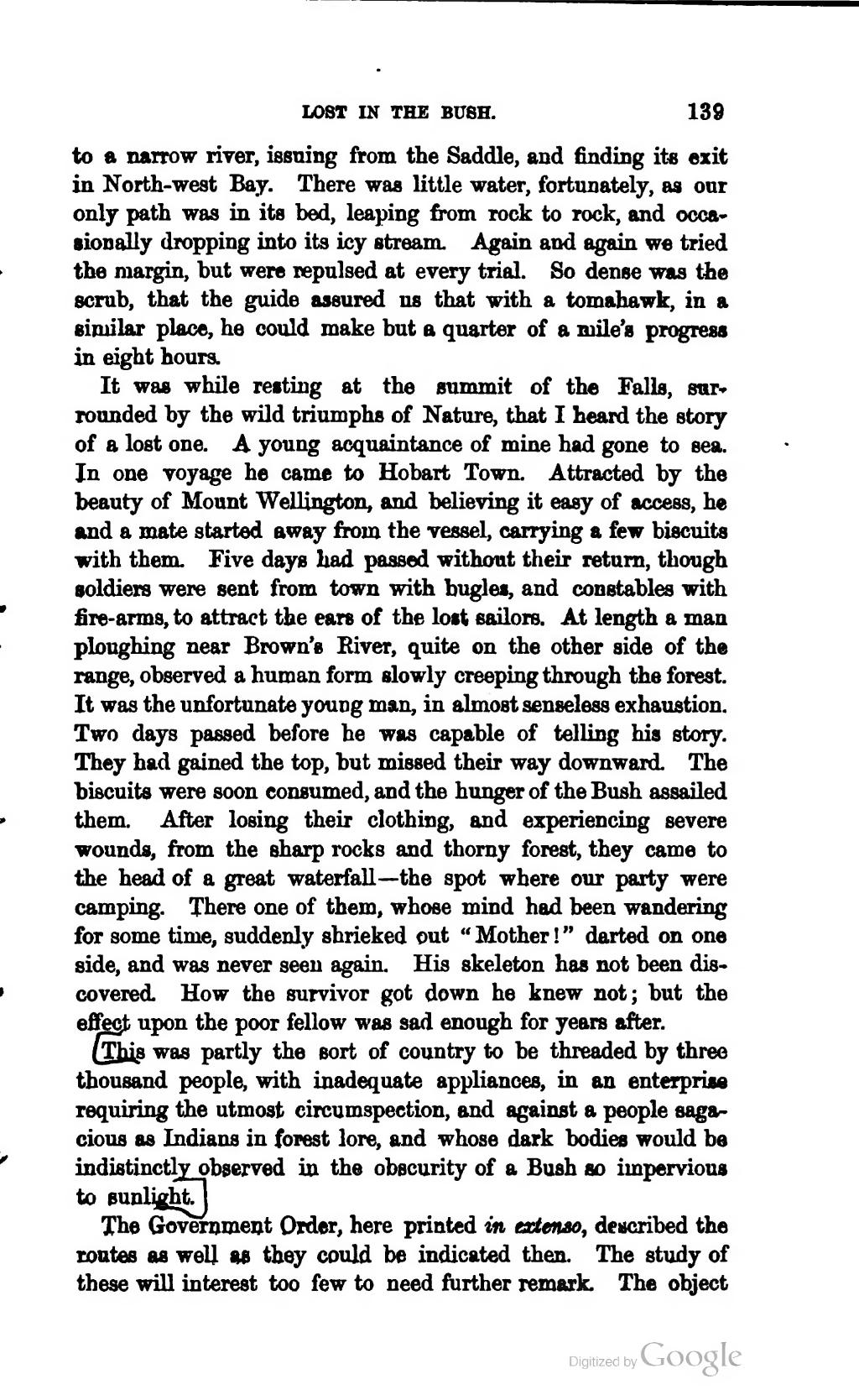to a narrow river, issuing from the Saddle, and finding its exit in North-west Bay. There was little water, fortunately, as our only path was in its bed, leaping from rock to rock, and occasionally dropping into its icy stream. Again and again we tried the margin, but were repulsed at every trial. So dense was the scrub, that the guide assured us that with a tomahawk, in a similar place, he could make but a quarter of a mile's progress in eight hours.
It was while resting at the summit of the Falls, surrounded by the wild triumphs of Nature, that I heard the story of a lost one. A young acquaintance of mine had gone to sea. In one voyage he came to Hobart Town. Attracted by the beauty of Mount Wellington, and believing it easy of access, he and a mate started away from the vessel, carrying a few biscuits with them. Five days had passed without their return, though soldiers were sent from town with bugles, and constables with fire-arms, to attract the ears of the lost sailors. At length a man ploughing near Brown's River, quite on the other side of the range, observed a human form slowly creeping through the forest. It was the unfortunate young man, in almost senseless exhaustion. Two days passed before he was capable of telling his story. They had gained the top, but missed their way downward. The biscuits were soon consumed, and the hunger of the Bush assailed them. After losing their clothing, and experiencing severe wounds, from the sharp rocks and thorny forest, they came to the head of a great waterfall—the spot where our party were camping. There one of them, whose mind had been wandering for some time, suddenly shrieked out "Mother!" darted on one side, and was never seen again. His skeleton has not been discovered. How the survivor got down he knew not; but the effect upon the poor fellow was sad enough for years after.
This was partly the sort of country to be threaded by three thousand people, with inadequate appliances, in an enterprise requiring the utmost circumspection, and against a people sagacious as Indians in forest lore, and whose dark bodies would be indistinctly observed in the obscurity of a Bush so impervious to sunlight.
The Government Order, here printed in extenso, described the routes as well as they could be indicated then. The study of these will interest too few to need further remark. The object
